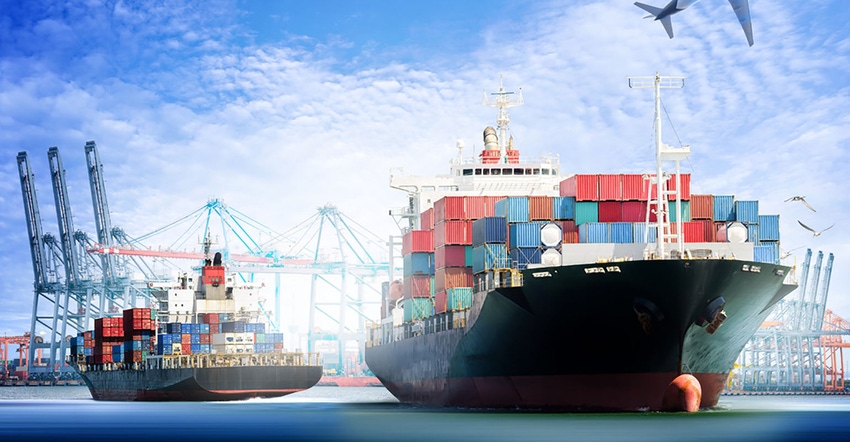
By Bloomberg News
China’s vigorous testing of all inbound frozen food shipments for virus risk, as well as the recovery in domestic hog numbers, could cause meat imports to plunge as much as 30% next year.
Long and cumbersome testing procedures increase the risks for meat importers, prompting them to buy less at a time when domestic pork prices have retreated from record levels, said Lin Guofa, a senior analyst at Bric Agriculture Group, a Beijing-based consulting firm.
Moreover, some mainland consumers are wary of overseas frozen meat due to concerns over food safety, according to Rabobank Group’s senior livestock analyst Pan Chenjun, who sees imports extending declines this winter.
China began testing cold food shipments for the coronavirus in June in a move it says is aimed at protecting public health, after imported salmon was singled out as a possible culprit for Beijing’s fresh Covid-19 outbreak that month.
Despite the small number of food samples that were found to be contaminated, the Chinese government asked for all overseas shipments of cold-chain products to be disinfected, while banning sales of imported frozen meat that do not have quarantine certificates or traceability information.
China’s meat and offal imports have already tumbled to their lowest since February, the height of the country’s coronavirus outbreak that led the top buyer to enter lockdown, crushing demand and jamming up global supply chains. Still purchases for the whole year are set to reach a record as domestic hog herds are still recovering from their ravaging by African swine fever.
Overseas purchases are set to tumble as much as 30% next year, Rabobank says
In Tianjin, China’s largest meat-handling port, thousands of meat and seafood containers are piling up as all cargoes have to undergo testing and preventive disinfection before delivery to cold storage, a shipping official told Bloomberg.
The congestion is the most acute this year even when compared with the middle of the year when customs clearance times tripled, or at the start of 2020 when swathes of the country were shut down, the official said.
Other major ports have also seen severe congestion due to limited cold storage space, and some second-tier cities have banned trucked shipments of frozen food from the ports over infection fears, according to a meat trading executive.
On Friday, Australia’s agriculture department said new health certification requirements from China for the import of non-viable (dead) aquatic products may pose uncertainties to current trade and cause some products to get detained at the Chinese border.
More than 40 cases of imported frozen products testing positive for the coronavirus have been reported in 16 provinces and regions across China as of November, according to Global Times. Products from Ecuador and Argentina have the highest number of discoveries, the state-backed newspaper reported.
Meanwhile, China’s hog herds are rebounding from African swine fever. Domestic pork output could expand as much as 20% next year from 2020, and reduce meat imports by between 20% and 30%, Rabobank’s Pan estimated.
© 2020 Bloomberg L.P.
About the Author(s)
You May Also Like




